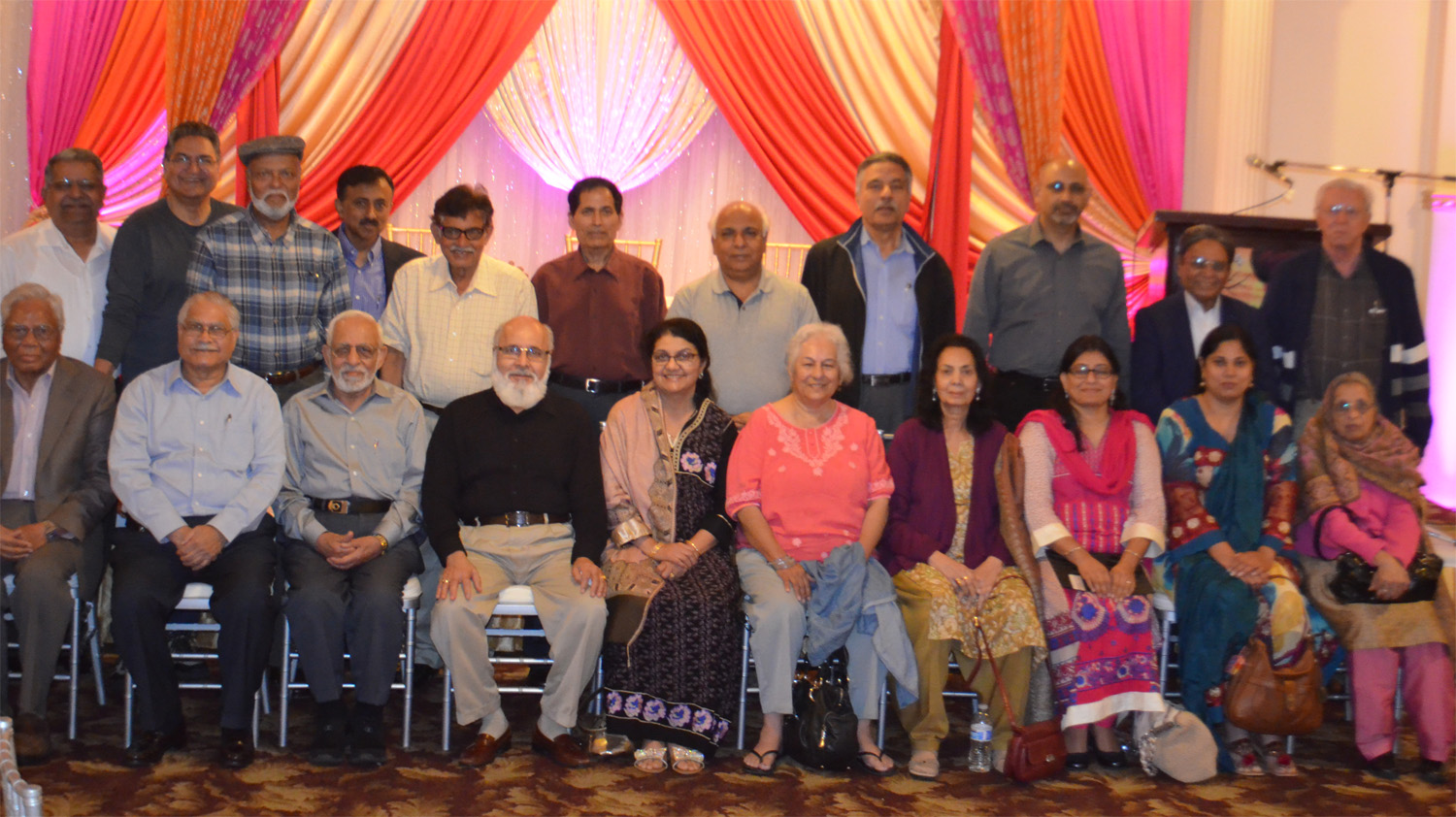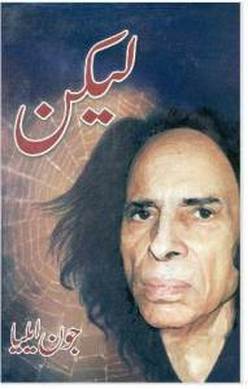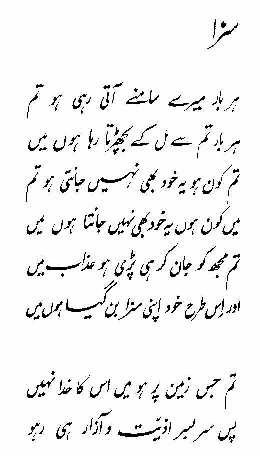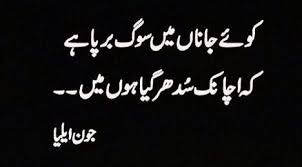|
Urdu Academy pays tribute to Jaun Elia 
By Abdus Sattar Ghazali
The Urdu Academy of North America's February 15, 2015 event was dedicated to the life and work of a great Urdu poets, Jaun Elia and Saghir Siddiqui. The literary event, at the Chandni Restaurant, Newark CA, was presided over by Hatim Rani, a prominent community member.
At the outset Khalid Rana, a senior member of the Academy, welcomed the guests on behalf of the Urdu Academy. He thanked entrepreneur Syed Sarwat for patronizing the Urdu Academy by providing venue to hold its monthly literary event. 
The first session was dedicated to the work of Jaun Elia. Kausar Syed was MC of the first session. Tashie Zaheer, President of the Urdu Academy introduced Kausar Syed for conducting the first session on Jaun Elia. It was the first time that Kausar Syed was presenting any Urdu Academy literary event. And she did a good job.
She presented a well researched maqala on the life and distinguished poetry of Jaun Elia.
As usual, a number of Urdu lovers reciting the poetry of Jaun Elia: Jaun Elia, Abdus Sattar Ghazali, Syed Aslam, Hatim Rani, Tasadduq Attari, Syed Babar, Moiz Khan, Zafar Khan, Ahmar Shehwar, Salman Siddiq and Nagesh Avadhani
Jaun Elia was born on 15 December 1931 in Amroha, Uttar Pradesh. He was the youngest of his siblings. His father, Shafiq Hasan Elia, was poet and was involved in art and literature.
He was the brother of journalist and psychoanalyst Rais Amrohvi and journalist Syed Muhammad Taqi, and husband of columnist Zahida Hina. He was fluent in Arabic, English, Persian, Sanskrit and Hebrew.
He migrated to Pakistan in 1957, and made Karachi his home. His poetry won him both acclaim and admiration in the local literary circle. Poet Pirzada Qasimsaid: "Jaun was very particular about language. While his diction is rooted in the classical tradition, he touches on new subjects. He remained in quest of an ideal all his life. Unable to find the ideal eventually, he became angry and frustrated. He felt, perhaps with reason, that he had squandered his talent."
His first poetry collection Shayad (an Urdu word which means "Maybe") was published in 1991, when he was 60. His preface in this collection provided deep insights into his works and the culture within which he was expressing his ideas.
The preface can also be considered as a fine example of modern Urdu prose. The second collection of his poetry Ya'ani was published posthumously in 2003. Later his companion, Khalid Ansari, compiled and published his three consecutive collections, Gumaan (an Urdu word which means "Illusion") in 2004, Lekin in 2006 and Goya in 2008.
An eminent Urdu literary critic, Muhammad Ali Siddiqui, has called Elia one of the three most eminent ghazal poets of Urdu of the second half of the twentieth century. Elia was an open anarchist and nihilist in generally a conservative and religious society. His elder brother Rais Amrohvi, himself a poet and influential intellectual, was murdered.
Jaun Elia had a distinctive sense of humor and was a person who loved ‘fantasizing’ about various aspects of life. Many literary critiques believe that Jaun’s poetry was influenced by the likes of John Keats and T.S. Eliot. Similar to Eliot’s poetry which laments the spiritual hollowness in the West, a subject that can be found in some of Jaun’s poems. Jaun Elia died after a protracted illness on 8 November 2002 in Karachi.
Continued on page two
|